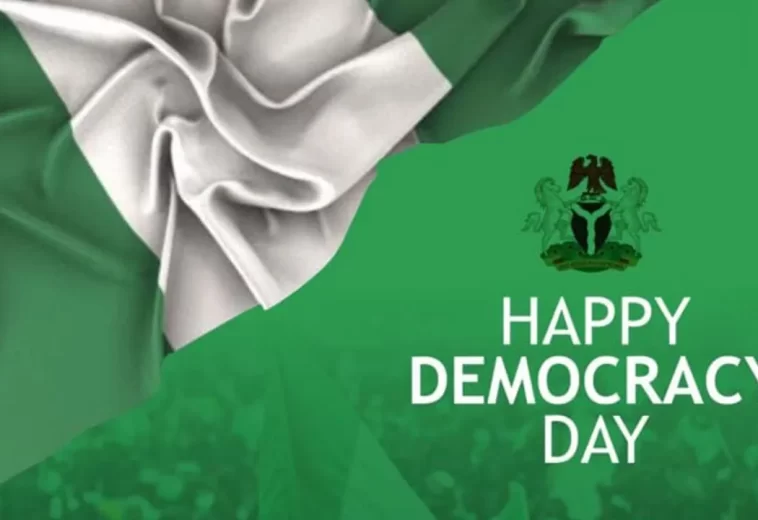As Nigeria marks its declared Democracy Day celebration, June 12, it becomes pertinent for me, as the editor of this pan-African institution, to assess the leadership impact of President Bola Tinubu, who assumed office on May 29, 2023. This piece examines Nigeria’s journey over the past twelve months through the lens of democratic institutions, economic principles, human rights advocates, and civil society organisations, with valuable insights from various local media sources.
Strengthening Governance and Accountability
Since taking office, President Bola Ahmed Tinubu has initiated significant reforms to bolster Nigeria’s democratic institutions, governance, and accountability. One of his administration’s hallmark moves was the abolition of the long-standing fuel subsidy, which had been a major drain on Nigeria’s resources, costing the government over a trillion naira annually. The removal of this subsidy is expected to redirect funds towards essential sectors like infrastructure, health, and education, thereby promoting more equitable economic development (Nairametrics).
Tinubu has also demonstrated a commitment to transparency and the rule of law through the suspension and subsequent investigation of Godwin Emefiele, the Governor of the Central Bank of Nigeria (CBN), for policy mishandlings and mismanagement. This controversial action signals a strong stance against administrative inefficiencies and corruption (Nairametrics).
Legislative Changes and Anti-Corruption Measures
Tinubu’s administration has shown a clear intent to overhaul Nigeria’s legislative framework to foster better governance. The President signed the Nigeria Data Protection Bill into law, establishing a legal framework to safeguard personal information and promote data protection practices (Nairametrics). This move is part of a broader effort to modernise Nigeria’s legislative environment in line with global standards.
In a bold step to tackle corruption, Tinubu approved the removal of Abdulrasheed Bawa, the chairman of the Economic and Financial Crimes Commission (EFCC), due to accusations of partisanship and ineffectiveness. This decision underscores the administration’s zero-tolerance policy towards corruption and its commitment to ensuring that key institutions operate without bias (Nairametrics).
Enhancing Accountability
President Tinubu has emphasised the importance of a vibrant judiciary and adherence to the rule of law. During his Democracy Day speech, he highlighted ongoing reforms aimed at harmonising the retirement age for judicial officers, which is expected to enhance the efficiency and independence of the judiciary (Nairametrics).
Additionally, the administration’s decision to review and sign new executive orders, including those amending the Finance Act and imposing excise taxes, reflects a strategic approach to economic management and regulatory oversight (BusinessDay). These actions are designed to create a more conducive environment for business and investment, thereby boosting economic stability and growth.
Impact on Public Trust
These reforms and policy decisions have had a mixed impact on public trust. While some Nigerians view the removal of the fuel subsidy and the suspension of high-profile officials as necessary steps towards greater accountability, others are concerned about the immediate economic hardships and the potential for political motivations behind certain decisions.
However, Tinubu’s administration has consistently communicated its vision for a more transparent and accountable government. By focusing on strengthening democratic institutions and implementing policies aimed at long-term benefits, the administration aims to rebuild public trust and promote sustainable development.
Nigeria’s Foreign Policy and Its Democratic Image
President Tinubu’s administration has actively pursued foreign policy rooted in the principles of democracy, economic development, and regional stability. One of the key aspects of this policy has been the 4-D Foreign Policy framework, focusing on Demography, Development, Diaspora, and Democracy. This approach emphasises the importance of leveraging Nigeria’s youthful population for economic growth, attracting foreign investments, and promoting democratic norms both domestically and internationally.
Tinubu’s government has prioritised strengthening ties with major global powers and regional allies. For instance, there has been a concerted effort to secure a permanent seat for Nigeria on the United Nations Security Council, reflecting the nation’s commitment to playing a more prominent role in global governance. Additionally, Nigeria has sought to deepen its economic partnerships through initiatives aimed at fostering industrialization and agricultural development, which are seen as crucial for sustainable growth and poverty reduction.
Promoting Democracy and Stability
A cornerstone of President Tinubu’s foreign policy has been the promotion of democratic governance across Africa. Nigeria, under Tinubu’s leadership, has positioned itself as a champion of democratic values, actively engaging in diplomatic efforts to resolve conflicts and support democratic transitions in neighbouring countries. This proactive stance is exemplified by Nigeria’s involvement in peacekeeping missions and mediation efforts aimed at stabilising regions plagued by political unrest.
Moreover, Tinubu’s administration has been vocal about the need for reform in global financial institutions to ensure more equitable treatment of African nations. This advocacy aligns with the broader objective of fostering a global environment that supports the democratic and economic aspirations of developing countries.
Reflecting Domestic Democratic Principles
The foreign policy actions under President Tinubu’s administration are not just about enhancing Nigeria’s global standing but also reinforcing democratic principles at home. By advocating for transparency, good governance, and human rights on the international stage, Tinubu’s government aims to set a benchmark for domestic policies. This alignment helps in building a cohesive national identity that is respected globally and rooted in democratic values.
The choice of key diplomatic appointments, such as the Minister of Foreign Affairs, reflects this commitment to intellectual and strategic competence over parochial considerations. The administration’s emphasis on meritocracy in these appointments underscores its dedication to effective and principled governance.
While there have been notable successes, Tinubu’s foreign policy faces several challenges. The global geopolitical landscape is increasingly complex, with shifting alliances and rising tensions. Nigeria must navigate these dynamics carefully to maintain its influence and pursue its objectives. Additionally, the internal challenges of economic instability and security threats require a foreign policy that is both outward-looking and responsive to domestic needs.
Economic Policies and Their Impact on Democratic Stability
Since assuming office, President Tinubu’s administration has embarked on significant economic reforms aimed at stabilising Nigeria’s economy and enhancing democratic stability. These policies, while ambitious, have had mixed impacts on the country’s economic landscape and democratic governance.
Fuel Subsidy Removal: One of the most contentious decisions by President Tinubu was the removal of fuel subsidies, which led to a substantial increase in the price of gasoline. The price per litre skyrocketed from approximately N195 to over N617, causing a ripple effect on transportation costs and the prices of goods and services (Tribune Online, ICIR Nigeria). While the government argued that this move was necessary to address fiscal imbalances, it has significantly burdened the average Nigerian, sparking public backlash and protests.
Exchange Rate Unification: Another critical reform was the unification of the exchange rate. The official rate of N462 to $1 was abolished, leading to a market-driven rate that has seen the naira depreciate to around N741 to $1 (ICIR Nigeria). This policy aimed to attract foreign investment and improve transparency in the foreign exchange market but has contributed to inflationary pressures, with the inflation rate rising from 22.41% to 24.08%.
Tax and Fiscal Reforms: The establishment of the Presidential Committee on Fiscal Policy and Tax Reforms was a step towards addressing Nigeria’s complex tax system. The goal is to increase the tax-to-GDP ratio to at least 18% within the next three years, thereby reducing the government’s reliance on borrowing (Tribune Online). The committee’s focus includes harmonising taxes and improving revenue collection efficiency, which are crucial for long-term economic stability and governance.
Impact on Democratic Stability
Economic Growth and Public Trust: Economic stability is fundamental to democratic stability. President Tinubu’s policies are designed to foster a more transparent and efficient economic environment, which in the long term could bolster public trust in the government. However, the immediate impact has been challenging for many Nigerians, with rising costs of living exacerbating public discontent.
Human Rights and Democracy
President Tinubu’s administration has faced scrutiny regarding its human rights record. While there have been advancements in civil liberties and political rights, including judicial reforms and commitments to protect freedoms, significant challenges remain. Human rights organisations report ongoing violations, including the harassment of journalists and activists, and emphasise the need for more decisive actions against abuses.
Civil Society and Public Response: The economic hardships resulting from these reforms have led to increased activism and protests from civil society groups and labour unions. For instance, the Nigeria Labour Congress (NLC) and the Trade Union Congress (TUC) have been vocal in their opposition to the fuel subsidy removal and have organised protests and even gone on national strike to demand wage increases and other palliatives to cushion the impact on workers.
President Bola Ahmed Tinubu’s first 12 months in office have been marked by significant efforts to strengthen Nigeria’s democratic institutions, governance, and economic stability. Through governance reforms, legislative changes, and a firm stance on anti-corruption, the administration is working towards a more accountable and transparent government. While challenges remain, these initiatives are crucial steps in enhancing governance, fostering a robust democratic framework, and positioning Nigeria as a pivotal player on the global stage. The balance between economic reform and democratic stability will be critical in determining the administration’s success and legacy.
King Richard Igimoh is the Group Editor of African Leadership Magazine.
editor@africanleadership.co.uk
king.richards@africanleadership.co.uk


